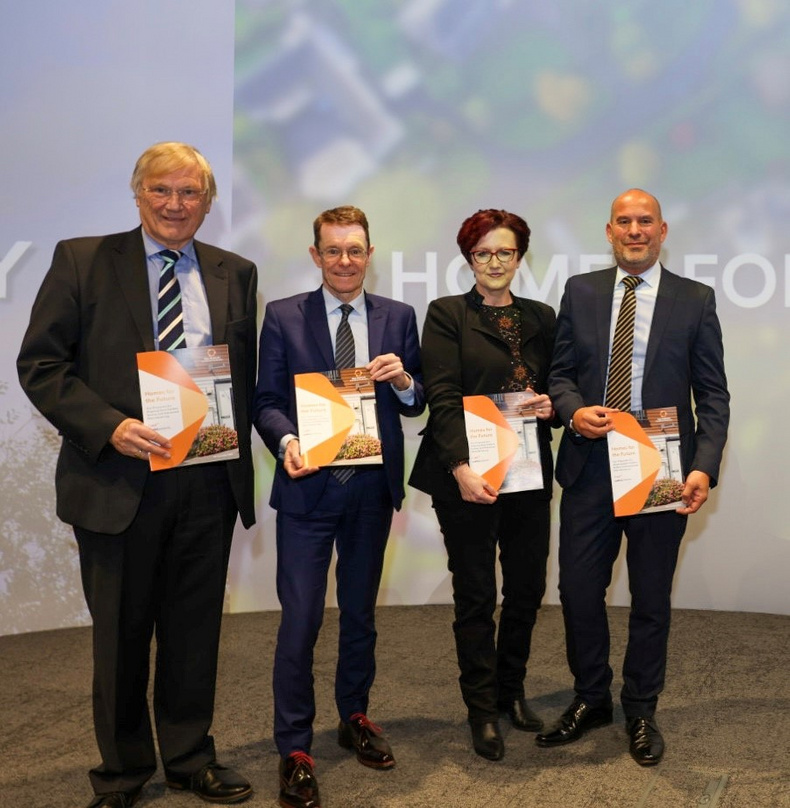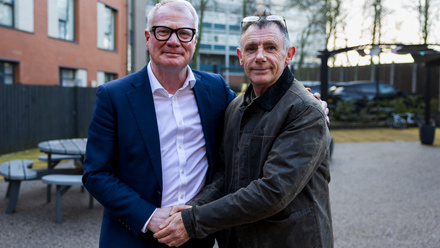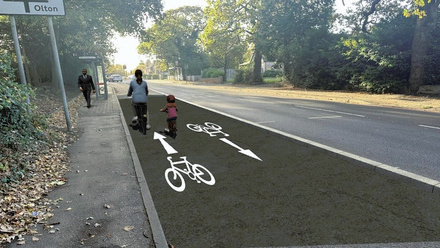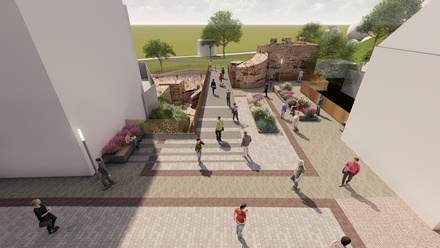Low carbon homes up to three times cheaper to heat than average home - report

Low carbon homes built in the West Midlands are up to three times cheaper to heat than an average property, according to latest data, as the region looks to new ways to tackle both the housing and climate emergency.
Research by the West Midlands Combined Authority (WMCA) using British Gas analysis has revealed that a three-bedroom, factory-built modular home with five people living in it costs £1.50 a day to heat, compared to £6.60 for an average three-bedroom home occupied by three people.
Now, in a drive to see more low carbon homes built across the region, the WMCA launched its ‘Homes for the Future’ proposals to tackle fuel poverty and climate change and help stimulate the region’s green construction and technology industries.
The WMCA also announced £200 million will be made available in the New Year to unlock more former industrial sites for new housing. It is expected around 12,000 homes will be ‘unlocked’ through the funding.
Next year developers will be able to apply for some of this funding to help get their housing schemes off the ground, providing local people with more affordable, low carbon and energy efficient homes.
The proposals set out are designed to encourage developers that are awarded WMCA investment to go above and beyond the national government’s forthcoming ‘Future Homes Standard’ – due to come into force in 2025.
This includes homes with the latest eco-technology such as solar panels, super insulation, and heat pumps.
The WMCA is now engaging with developers and other industry bodies on the proposals with a view to putting them into practice in the New Year.
There are an estimated 235,512 fuel poor homes in the West Midlands – the highest rate of fuel poverty in any English region at 17.5 per cent, with some areas experiencing much higher rates of over 40 per cent.
More than half of all neighbourhoods in the West Midlands are in the bottom 20 per cent when it comes to fuel poverty, nearly three times the national average.
One award winning modular housing scheme – Citizen Housing’s Littlethorpe development in Willenhall, Coventry – is helping to tackle the issue. Latest data shows total running costs at £1.48 a day for a three-bedroom home on the development. Solar panels alone on these homes guarantee residents a 20 per cent saving on their fuel bills.
The modular homes, which are built in factory-controlled conditions before being delivered to site and craned into place, have proved popular with those who have recently moved in.
Speaking at the launch event at the National Brownfield Institute in Wolverhampton, Andy Street, mayor of the West Midlands and WMCA chair, said: “The research we have undertaken on home heating costs is stark, and shows why doubling-down on low-carbon homes in the West Midlands is so important.
“In order to do this – and help tackle the fuel poverty and climate emergency we face across the region – we must have a proper plan in place for future housebuilding in the region. That’s what our Homes for the Future proposals do, and I’m delighted we’ve been able to launch it today.
“It comes alongside our re-commitment to housebuilding and brownfield regeneration in the West Midlands, with this latest £200 million war chest being made available to help unlock former industrial sites and brownfield land for housing.
“We’ve been using this ‘Brownfield First’ approach to such success since 2017 that we believe we are the only region to remain on track to reach their housing target.
“But we must continue our progress, and we hope this £200 million will help unlock a further 12,000 homes for local residents across the West Midlands.”
About 340,000 new homes are needed in England each year, of which 145,000 should be classed as affordable, according to research commissioned by the National Housing Federation and the homeless charity Crisis from Heriot-Watt University.
The West Midlands has set its own target of 215,000 new homes by 2031 and remains on course to achieve this. Developers receiving WMCA funding for their schemes are also required to make a minimum 20 per cent of those homes affordable.
In 2020, the WMCA was the first region in the UK to introduce its own localised definition of affordable housing, linking it to real-world incomes of people in the area rather than to local property prices.
The majority of WMCA-funded homes have been built on former industrial sites, establishing the region as a national leader in brownfield regeneration, helping to tackle the housing shortage in towns and cities in the process.
Meanwhile the region’s medium term growth strategy, Plan for Growth, suggests building future homes could add 3,700 high value jobs to the West Midlands economy.
The West Midlands Homes for the Future proposals have been developed with the support of the WMCA’s Delivery Steering Group, Land Delivery Board and Future Homes Taskforce to put the region at the forefront of a national change in housing construction and to achieve the fundamental goals set out in the Strategy.
Pictured (L-R): Ian Courts, leader of Solihull Council and portfolio holder for housing and land at WMCA; Andy Street, mayor of the West Midlands, Mary Parsons, regeneration and partnership directors for Lovell, and Mark Farmer, chair of the WMCA housing task force and chief executive officer of CAST consultancy



